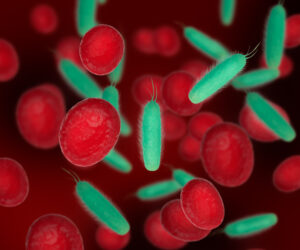Microbiome and the Healthy Life
Microbiome and the Healthy Life
Have you ever heard of the microbiome? Microbiome and the healthy life, we can say that one does not exist without the other because the microbiome is what keeps us healthy. The human microbiome or human microbiota is the sum of all microorganisms that reside in human tissues and fluids, composed mainly of bacteria. The normal human microbiota also includes some fungi, archaea and viruses. Each anatomical site (skin, mouth, intestine, vagina…) has its specific microbiome, this information is what you find on the internet.
What if I told you that 90% of the cells in your body are not human? What if I told you that the secret to losing weight and not getting fat again is these 90% non-human cells – a whole separate ecology inside your own body? A series of scientific discoveries made in the last few years has revealed that the secret to quick and permanent weight loss is the microbiome – the trillions of tiny bacteria that live in our intestines.
While millions of people live trying all kinds of diets – but failing to lose weight or regain all the weight they have lost – here is a new paradigm. Modern science has shown that the microbiome is the key to marked, healthy weight loss, as well as significantly improved general health, mood, energy level, and mental function.

Microbiome and the Healthy Life- What Research Reveals About the Microbiome
Research shows that when the microbiome is out of balance, people often get fat, even if they haven’t made any changes to their eating habits or exercise routine. A microbiome in imbalance dooms any and all diets to failure. By contrast, when the microbiome is in balance, people lose weight even without making any further changes.
These microscopic organisms regulate how calories are extracted from food, produce vital nutrients, and help regulate the immune system. They have an enormous influence on hormones, appetite, the desire to eat certain foods, and even genes. In addition, they have a huge impact on neurotransmitters, the brain chemicals that regulate mood, energy levels, and mental functions. Most important of all, however, is the way in which the microbiome affects metabolism. When the metabolism is fast and running at full speed, the person slims down and does not put on weight again, maintaining a healthy weight effortlessly. When the metabolism is slow and prone to retain body fat, the person puts on weight and keeps the extra pounds, even while reducing calorie intake and exercising.
“The metabolism is the secret of weight loss. And the microbiome is the secret of metabolism”
Microbiome and the Healthy Life- What is the Microbiome ?
Microbiome is a miniature world made up of trillions of microorganisms, non-human organisms that multiply in the intestinal tract. These gut microorganisms – bacteria – digest the food we eat, regulate our appetite, control our metabolism, orchestrate our immune system, influence mood, and even help determine how our genes are expressed. They have a great impact on heart health, bone development, and mental acuity and clarity. They help make sure that food is properly digested in the gastrointestinal tract, so that we can absorb all the nutrients we need. These microorganisms even produce natural antibiotics.
Most amazing of all is that these microorganisms represent 90% of our cells! Think about this for a moment. Most of the cells in your body are not human. Inside your intestinal tract there is a whole separate ecology that is inexplicably involved with yours. When these microorganisms flourish, you flourish.
When they face difficulties, you face difficulties. When they have sugar cravings, you also have sugar cravings. And when they function at maximum efficiency, your metabolism also functions at maximum efficiency. This is why balancing the microbiome is key to stop feeling that huge craving for certain foods, and also to eliminate symptoms that you may never have related to your weight and diet, such as fatigue, anxiety, depression, a clouded mind, headaches, acne, eczema, airway congestion, frequent colds and infections, joint pain, and muscle pain.
In fact, antibiotics alone do not lead to weight loss, but rather to weight gain – and for the same reason. Antibiotics are designed to kill the harmful bacteria that are in our bodies, but often, in a “hail of bullets,” they also eliminate innocent bystanders, destroying the beneficial bacteria and causing an imbalance in the microbiome. The principle implied in this case is clear: “Metabolism, weight and overall health depend on the balance of microbial life in our gastrointestinal tract”.
Microbiome and the Healthy Life- MICROBIOME AND HEALTH
he body actually contains a whole ecology of non-human organisms – bacterial flora and fauna that live inside us in a symbiotic relationship. The ecology that lives in our gut depends on us, and we depend on it too. Treating it and keeping it in balance is essential for our overall health. Scientists have long known of the existence of the microbiome, but only recently have we begun to understand its importance.
In 2008, the (National Institutes of Health (NIH) in the United States began a project to map the microbiome, sparking an enormous amount of fascinating research. Cutting-edge studies reveal that in addition to helping us resist disease, depression, and anxiety, the microbiome is fundamental to metabolism, hunger, eating patterns, and weight. Cutting-edge studies reveal that in addition to helping us resist disease, depression, and anxiety, the microbiome is fundamental to metabolism, hunger, eating patterns, and weight.
Before, we thought that all microorganisms were harmful bacteria determined to infect us with deadly diseases. Now we are beginning to understand that most micro-organisms are actually beneficial to us, performing so many important functions that without them we would not be able to survive
Microbiome and the Healthy Life- Balance and Efficiency
When we eat foods that keep this inner world in balance, our metabolism works with maximum efficiency. We maintain our ideal weight almost effortlessly. We only feel hungry when we really need to eat, and we are satiated when we eat enough. We lose body fat that deforms the body, regaining a relatively flat waistline and abdomen. In addition, we have more energy than ever before, without problems of a cloudy mind, insomnia, depression, and anxiety. Skin and hair become shiny and healthy. This is why I say that balancing the microbiome is key to having the ideal weight and good health.
Microbiome and the Healthy Life- The forgotten organ
Most people think that we are autonomous beings whose growth and development depend entirely on ourselves. But in fact, health, weight, and our very survival are inexplicably dependent on our microbiome. As soon as we pass through the vaginal canal, we begin to become 90% microorganisms. The moment we arrive in the world, we begin the process of acquiring the trillions of bacteria we need to have optimal health. In fact, the microbiome is so important to our survival that it is called the “forgotten organ”. One of the first bacteria we encounter is called Lactobacillus johnsonii, a microscopic creature that we acquire in the vaginal canal. This microorganism digests milk and thus helps us to metabolize breast milk. A significant fact is that breast milk itself contains oligosaccharides, a type of prebiotic that feeds the microbiome.
When we are babies we cannot digest this substance, but our microbiome can. How important the microbiome must be for our survival, since breast milk itself feeds this non-human, yet fundamental, portion of our anatomy!
Scientists are just beginning to realize the importance of the microorganisms acquired during this passage through the vaginal canal, given that babies who do not have this initial access to the maternal microbiome – that is, children who are born by C-section – often have various immune system-related disorders, such as asthma, allergies, celiac disease, and skin infections. Some studies indicate that children born by C-section are also at higher risk of having type 1 diabetes and obesity – another connection between the microbiome, metabolism, and weight. Similarly, many researchers now believe that when children take antibiotics, which can destroy the microbiome, they are at greater risk of allergic diseases, inflammatory bowel diseases, and, again, obesity.
Although each individual microorganism is small, together those trillions of tiny organisms weigh about 1.4 kilograms – coincidentally, the same weight as the human brain. The “forgotten organ” occupies the digestive system, the mouth, the nasal cavities and the lungs, as well as the skin and the brain. If you are a woman, the microbiome also colonizes your vaginal canal, as we said earlier. A healthy microbiome contributes to overall health, while a microbiome that is out of balance is related to a propensity for infections, immune system imbalance, and inflammation.
Scientists believe that the greater the diversity of the microbiome – the more species it contains – the healthier and better able to control unwanted weight gain a person will be. So far, researchers have identified about 10,000 species of bacteria that possibly make up the human microbiome, but each individual’s microbiome has a unique combination. Even identical twins have distinct microbiomes.
At the same time, we generally acquire bacteria from the people we live and work with, and perhaps even from casual contacts on a busy street or in a crowded room. This is possible because the microbiome is very dynamic, capable of changing its composition within 24 hours in response to stress, antibiotics and disease, and within a few weeks or even days in response to diet, supplements and exercise.
The microbiome is a term used to describe the community of microorganisms that live inside an organism. These microorganisms play a key role in the health of their hosts, as they can influence immunity, digestion, and even mood. It is important to know the microbiome to understand the overall health of the body.
Visit our website for more information and tips about the Microbiome

